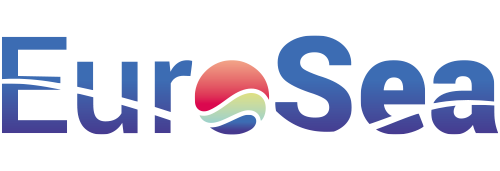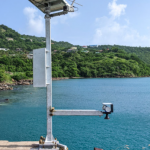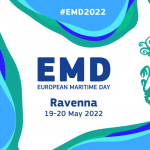From 22 to 24 March 2022, the second edition of the EOOS Technology Forum took place as a virtual workshop, organised by EuroGOOS with the support from EuroSea and Minke and endorsed as an activity the UN Decade for Ocean Science and Sustainable Development 2021-2030.
The workshop brought together over 120 participants representing instrument manufacturers, technicians, technologists, and scientists across the public and private sectors from across the globe. Many experts of EuroSea contributed to the event as speakers and panelists. Participants discussed what technologies will be needed to achieve two goals of the UN Decade for Ocean Science and Sustainable Development 2021-2030: “A clean ocean where sources of pollution are identified and removed” and “A healthy and resilient ocean where marine ecosystems are mapped and protected”.
This three-day workshop included high-level presentations, panel discussions, and Show and Tell sessions on technological innovations. A wide range of recommendations came out of the discussions spanning the ocean observing and data value chain. It was recognized that sensor miniaturization, lower cost, new sources of power, and higher automation of marine technologies is allowing scientists to collect more and more data. This is key, among others, in under-sampled remote areas and for biological variables, which have not been subject to automatic and real-time observations before. The advances in cloud computing, big data processes, machine learning, and artificial intelligence have been reducing the need for the human intervention. Innovations in cyber-infrastructure and communications, such as underwater Internet of Things, allow for more data storage and machine-to-machine interactions. The use of new sustainable materials for the production of technologies has increased and improved the ocean observing capacities.
With the raise of opportunities and capabilities, the forum called for more partnerships and cross-disciplinary engagement between the public and private sectors. Ocean observations and data require a wide range of expertise spanning mathematics and IT, engineering and marine sciences – who should all work closely together. The development of best practices and knowledge transfer are essential to share and multiply expertise and support an equitable technological development. Communicating the opportunities of ocean observing technologies is important to underpin the search of investment. Not only successes deserve promotion, struggles and challenges of ocean observing may also bring attention of stakeholders and raise the momentum for ocean technologies.
EuroSea will announce the release of the forum report in the coming months. The foresight recommendations of the forum will be part of the EuroSea legacy and contribute to improving the European ocean observing system which is responsive to all opportunities the technological progress has to offer.
For more information about future EOOS-related events, please visit the EOOS website.


